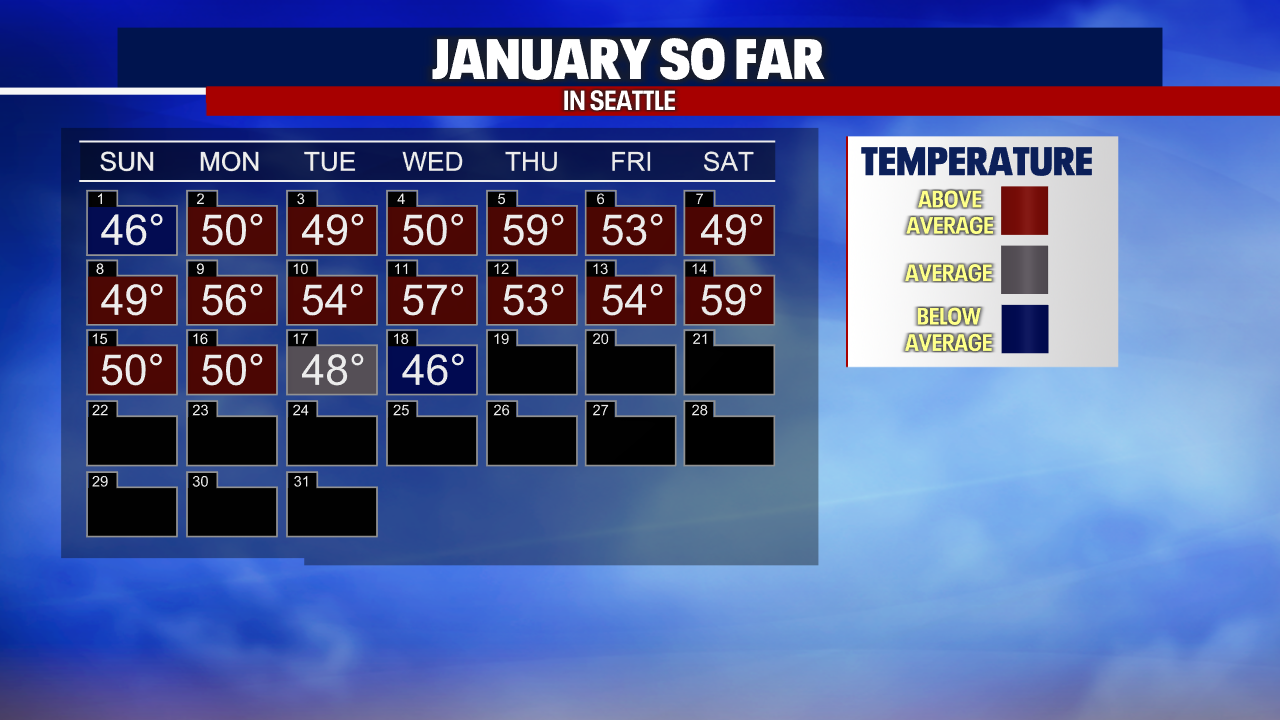Planning For The Upcoming Drier Weather

Table of Contents
Conserving Water During Drier Weather
Water conservation is paramount during drier weather. Implementing both outdoor and indoor water-saving measures will significantly reduce your water footprint and help you navigate the drier months effectively.
Implementing Water-Wise Gardening Techniques
Your garden can thrive even during drier weather with the right approach. By employing water-wise gardening techniques, you can maintain a lush landscape while conserving precious water resources.
- Choose drought-tolerant plants: Opt for native plants and varieties known for their resilience to dry conditions. These plants are naturally adapted to the local climate and require less watering. Consider succulents, lavender, and drought-resistant grasses as excellent choices.
- Install a drip irrigation system: Drip irrigation delivers water directly to the roots of plants, minimizing evaporation and runoff. This efficient method ensures that your plants receive the necessary hydration without wasting water.
- Water deeply but less frequently: Encourage deep root growth by watering less often but more thoroughly when you do. This helps plants develop strong root systems that can access water deeper in the soil.
- Mulch around plants to retain moisture: Applying a layer of mulch around your plants helps retain soil moisture, reducing the frequency of watering. Mulch also suppresses weeds, which compete with plants for water.
- Collect rainwater for gardening: Install a rain barrel to collect rainwater from your roof. This collected water is an excellent, free source of irrigation for your garden.
Reducing Household Water Usage
Conserving water isn't limited to the garden; you can significantly reduce your household water consumption with simple changes.
- Fix leaky faucets promptly: A dripping faucet can waste gallons of water over time. Addressing leaks quickly prevents unnecessary water loss.
- Take shorter showers: Reducing your shower time by just a few minutes can make a noticeable difference in your overall water usage.
- Use water-efficient appliances: Look for appliances like washing machines and dishwashers with WaterSense labels, indicating high efficiency.
- Reuse greywater for gardening (where appropriate and legal): Greywater, the wastewater from showers and sinks, can be reused for watering plants in some areas, provided it's legally permitted and the system is properly installed.
- Sweep driveways and patios instead of hosing them down: Avoid unnecessary water waste by sweeping instead of hosing down outdoor surfaces.
Protecting Your Property from Dry Conditions
Drier weather increases the risk of property damage from fire and structural issues. Taking proactive steps to protect your property is essential during these periods.
Fire Safety Precautions
Preventing wildfires is crucial during drier weather. A proactive approach to fire safety significantly reduces the risk to your property and the surrounding environment.
- Clear dry brush and debris around your home: Create a defensible space around your home by removing flammable materials such as dry leaves, branches, and brush. This reduces the risk of fire spreading to your property.
- Maintain a safe distance between structures and vegetation: Keep vegetation at a safe distance from your house and other structures to minimize the risk of fire damage.
- Check and maintain smoke detectors: Ensure your smoke detectors are functioning correctly and replace batteries regularly.
- Develop an evacuation plan: Create a family evacuation plan in case of a wildfire, including designated meeting points and escape routes.
- Be aware of fire restrictions and regulations: Stay informed about local fire restrictions and regulations imposed during drier weather.
Preventing Structural Damage
Dry conditions can exacerbate existing structural issues and cause new ones. Regular inspections and maintenance are key to protecting your property's structural integrity.
- Check for and repair cracks in foundations and walls: Addressing cracks promptly prevents further damage and structural instability.
- Inspect your roof for damage: Ensure your roof is in good condition to prevent water damage during infrequent rain showers.
- Ensure proper gutter maintenance: Clean gutters regularly to prevent water damage and ensure efficient drainage.
- Address any potential issues with landscaping that might contribute to erosion: Proper landscaping helps prevent erosion, protecting your property's foundation.
Planning Outdoor Activities During Drier Weather
Enjoying the outdoors during drier weather requires adjustments to stay safe and comfortable. Prioritizing sun protection and hydration is key.
Staying Hydrated and Protected from the Sun
Sun exposure during drier weather can be intense. Protecting yourself from the sun's harmful rays is vital.
- Drink plenty of water: Stay hydrated by drinking plenty of water throughout the day, especially before, during, and after outdoor activities.
- Wear sunscreen with a high SPF: Use a broad-spectrum sunscreen with a high SPF to protect your skin from sunburn.
- Wear a hat and sunglasses: A wide-brimmed hat and sunglasses provide additional protection for your face and eyes.
- Take frequent breaks in shaded areas: Rest in shaded areas to avoid prolonged sun exposure.
- Be aware of the signs of heat exhaustion and heat stroke: Know the symptoms of heat exhaustion and heat stroke and seek medical attention if necessary.
Adjusting Outdoor Activities
Modifying your outdoor activities to suit drier conditions ensures a safer and more enjoyable experience.
- Avoid strenuous activities during the hottest part of the day: Schedule less demanding activities for the hottest periods.
- Choose activities that are less physically demanding: Opt for activities that are less physically taxing, such as leisurely walks or picnics.
- Be mindful of fire risks when engaging in outdoor activities such as camping or grilling: Exercise caution when using fire during drier weather, following all safety guidelines.
- Check weather forecasts before heading out: Stay informed about weather conditions and potential hazards before planning outdoor activities.
Conclusion
Planning for drier weather is essential for protecting your property, conserving resources, and ensuring personal safety. By implementing the water-saving techniques, fire safety precautions, and outdoor activity adaptations outlined above, you can effectively manage the challenges posed by prolonged periods of less rainfall. Remember, proactive planning for drier weather is key to a safe and comfortable experience during these drier months. Start preparing for the upcoming drier weather today!

Featured Posts
-
 Transferz Krijgt Financiering Van Abn Amro Voor Digitaal Platform
May 21, 2025
Transferz Krijgt Financiering Van Abn Amro Voor Digitaal Platform
May 21, 2025 -
 Benjamin Kaellman Maalivire Huuhkajien Tukena
May 21, 2025
Benjamin Kaellman Maalivire Huuhkajien Tukena
May 21, 2025 -
 Mummy Pigs Big Announcement Peppa Pigs Family Welcomes A New Piglet
May 21, 2025
Mummy Pigs Big Announcement Peppa Pigs Family Welcomes A New Piglet
May 21, 2025 -
 Mainzs Impressive Win At Gladbach Solidifies Top Four Position
May 21, 2025
Mainzs Impressive Win At Gladbach Solidifies Top Four Position
May 21, 2025 -
 D Wave Quantum Nyse Qbts Stock Understanding The Recent Market Decline
May 21, 2025
D Wave Quantum Nyse Qbts Stock Understanding The Recent Market Decline
May 21, 2025
Latest Posts
-
 Los 5 Mejores Podcasts De Misterio Suspenso Y Terror En Espanol
May 22, 2025
Los 5 Mejores Podcasts De Misterio Suspenso Y Terror En Espanol
May 22, 2025 -
 Bwtshytynw Ystdey Thlatht Laebyn Lawl Mrt Lmntkhb Alwlayat Almthdt
May 22, 2025
Bwtshytynw Ystdey Thlatht Laebyn Lawl Mrt Lmntkhb Alwlayat Almthdt
May 22, 2025 -
 Young Louth Food Entrepreneur From Startup To Business Mentor
May 22, 2025
Young Louth Food Entrepreneur From Startup To Business Mentor
May 22, 2025 -
 5 Podcasts Esenciales Para Amantes Del Misterio Suspenso Y Terror
May 22, 2025
5 Podcasts Esenciales Para Amantes Del Misterio Suspenso Y Terror
May 22, 2025 -
 Thlatht Njwm Jdd Yndmwn Lmntkhb Amryka Tht Qyadt Bwtshytynw
May 22, 2025
Thlatht Njwm Jdd Yndmwn Lmntkhb Amryka Tht Qyadt Bwtshytynw
May 22, 2025
